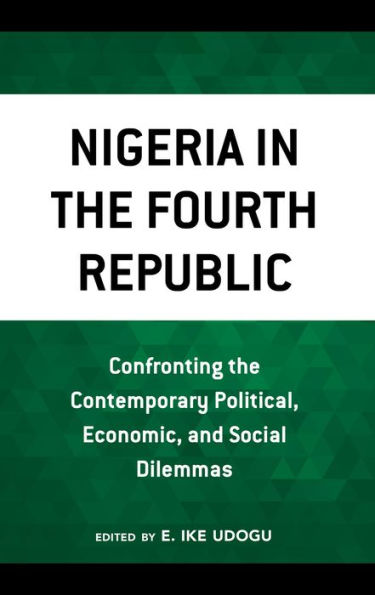

Nigeria in the Fourth Republic: Confronting the Contemporary Political, Economic, and Social Dilemmas
Poetic Blogger@poeticblogger
1 year ago
Nigeria in the Fourth Republic: Confronting the Contemporary Political, Economic, and Social Dilemmas
by E. Ike Udogu (Editor), A. B. Assensoh (Foreword by), Yvette M. Alex-Assensoh (Foreword by), Philip C. Aka (Contribution by), Joseph Abiodun Balogun (Contribution by)
Nigeria in the Fourth Republic: Confronting the Contemporary Political, Economic, and Social Dilemmas is an insightful collection of essays that examines Nigeria’s political, economic, and social landscape since the return to democratic governance in 1999. Edited by E. Ike Udogu, the book brings together contributions from leading scholars and experts who provide a thorough analysis of the key challenges and opportunities Nigeria has faced during its Fourth Republic.
The book explores a wide range of topics, including the evolution of Nigeria’s democratic processes, the persistence of corruption, the role of civil society, and the struggle for human rights and good governance. It offers a critical assessment of the country’s electoral system, the power dynamics within its political institutions, and the ongoing challenges related to leadership, transparency, and accountability.
One of the key focuses of Nigeria in the Fourth Republic is the nation's economic dilemmas. The contributors examine Nigeria's dependence on oil and the subsequent efforts at economic diversification. They discuss the impact of globalization on Nigeria’s economy, the persistent issues of unemployment and poverty, and the government’s attempts to implement reforms that can spur growth and development. The essays provide valuable insights into how economic policies have affected different sectors, such as agriculture, industry, and infrastructure development.
The social aspects of Nigerian life during the Fourth Republic are also thoroughly explored. The book addresses pressing issues such as ethnic and religious tensions, regional disparities, the rise of terrorism (particularly with the Boko Haram insurgency), and the impact of these social dilemmas on national unity. Contributors also discuss how these challenges intersect with governance, political stability, and the overall development of the nation.
With a foreword by A. B. Assensoh and Yvette M. Alex-Assensoh, and contributions by respected academics like Philip C. Aka and Joseph Abiodun Balogun, the book presents a well-rounded, scholarly analysis of Nigeria’s journey during this pivotal period. It emphasizes the importance of addressing these dilemmas through both national policy and grassroots engagement to create a more stable, prosperous, and inclusive future for Nigeria.
Nigeria in the Fourth Republic is an essential read for students, scholars, policymakers, and anyone interested in understanding Nigeria’s contemporary challenges and the efforts being made to overcome them. It provides a comprehensive and nuanced understanding of the socio-political and economic factors shaping Nigeria today, while offering thoughtful recommendations for tackling the issues that continue to hinder the nation’s progress.
